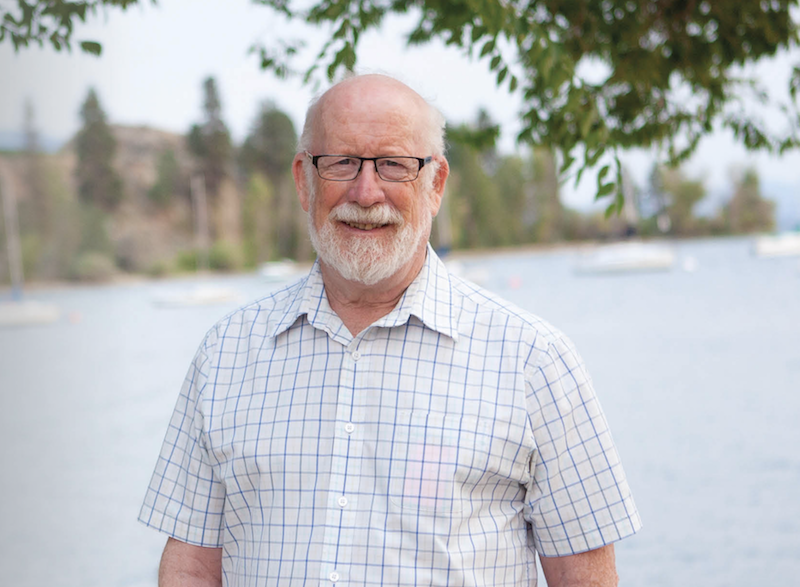News
NDP wants to expunge minor cannabis records
Published on September 17, 2021 by David Wylie

The NDP is clear that it wants cannabis records expunged.
Its promises include proactively expunging criminal records for Canadians convicted of minor cannabis possession.
NDP candidate Richard Cannings says the NDP wants records for minor cannabis possession to be completely erased.
He’s running for re-election for South Okanagan—West Kootenay.
“We have always been the champion for full expungement of records—not a pardon,” he says.
A pardon can continue to be limiting because it remains on your record, he says. That means it can continue to impact your ability to cross the border, find work, and rent a place to live.
“That’s not right,” says Canning, a biologist and author who was elected federally in 2015.
The NDP had put forward a private member’s bill for full expungement, but it was voted down by the other parties.
Cannings says the party will likely continue those efforts.
“I could easily see the NDP bringing back that bill because it only makes sense. We were very disappointed when the other parties refused to see it that way,” he says.
MP represents cannabis legacy
Cannings’ riding has a special interest in weed.
“This riding has maybe a different focus on cannabis than many ridings in Canada because it was really one of the hearts of the legacy production, as we call it now,” he says.
The main issue in his riding is challenges facing legacy growers wanting to go legal—“trying to keep some if that legacy that made BC famous.”
“There are real hurdles to that both in terms of investments, money, and a huge amount of bureaucracy. We have Community Futures projects in the Kootenays that are helping some of those producers get over those hurdles,” he says.
“During the whole process of legalization, I did a lot of lobbying and advocacy for people like that who felt that they were being pushed out of the market by multinational corporate growers… instead of the craft cannabis market.”
Marketing restrictions to stay
“That’s one of the things the public really demanded in going along with cannabis legalization. There’s still a lot of concern out there about cannabis, especially with young people. There’s real concerns in many people’s minds about the effects that cannabis has on young people. When you’re talking advertising, the big concerns are always how vulnerable young people are, and that goes for alcohol as well as cannabis.”
The beer industry also has difficulties, including not being able to show people having fun drinking beer.
“This might change over time, but right now people are very concerned about the effects cannabis has on young people and advertising is one of those important pieces.”
“Right now I don’t see any big push to change that.”
Open to changes on THC limits
The 10-mg THC limits on drinks and edibles are playing into the hands of the grey market.
“It’s part of the reason that all those legacy growers and producers are still there, he says, adding many consumers don’t like the limits.
“I think it is something we have to tackle.”
Can’t force banks to lend
When it comes to money issues, Cannings says there’s not much that can be done about helping cash flow.
“Banks are a federal jurisdiction, so we can tell them to do a lot of things—but whether we can force them to give other people money … I’m seeing difficulties arise in my mind there.”
Legal cannabis is a new phenomenon in Canada; banks are wary to lend money
“I’m hoping in five or 10 years those difficulties will ease.”
He’s been trying to advocate that the federal government help Community Futures, which has been operating as a pilot project through provincial funding.
“I’ve been advocating the Liberal cabinet step up. It would be a big gain for their government coffers if we could get those producers into the legal market where they would still make a good living while proving a lot of tax income to the federal government.”
Indigenous frustrations
Cannings says he has been hearing from First Nations who don’t like that they’re being limited by provincial regulations for distribution—though indigenous land isn’t under provincial jurisdiction.
“Some of them would like to get into online sales, which now is the private fiefdom of liquor control boards across the country,” says Cannings. “We have the same problems with wine and beer, let alone cannabis.”
Five-Part 2021 Election Series
Leave a comment on our Facebook page.
© Copyright 2021 Okanagan Z. | About the oz.
Report a Typo or Inaccuracy
We strive to avoid typos and inaccuracies. However, on occasion we make mistakes. We value your contributions and help in correcting them.